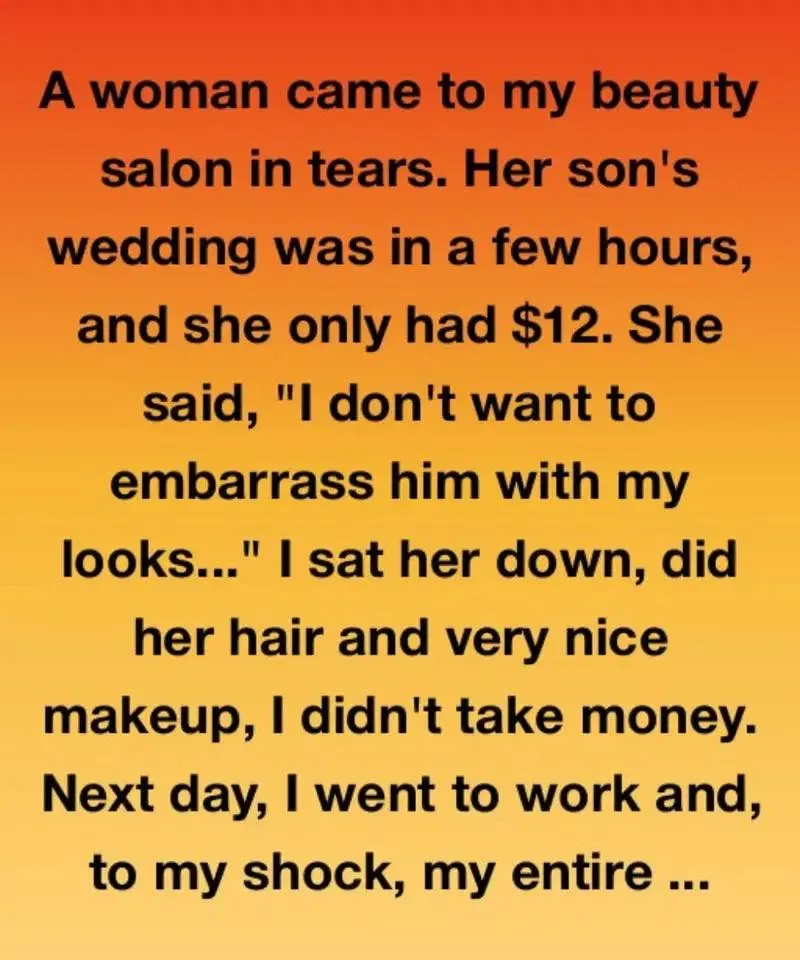It was barely sunrise when a woman stepped quietly into my salon, her eyes swollen from tears and her hands trembling as she clutched a worn purse. “My son’s getting married today,” she said softly, “and I only have twelve dollars.” Her voice cracked under the weight of years—years of loss, worry, and sacrifice. I could see she wasn’t just asking for a service; she was asking to feel like herself again, if only for a few hours.
Without hesitation, I guided her to a chair and smiled. “Let’s make you feel like a queen today.” I wanted to give her more than a hairstyle. I wanted to give her back her confidence, her grace, her sense of worth. As I worked—curling her silver hair, applying soft makeup, brushing warmth into her tired features—she told me stories of her late husband, who used to remind her she was beautiful no matter what life threw her way.
When I finally turned her toward the mirror, she gasped. Then she smiled—a radiant, trembling smile that seemed to chase away every shadow in the room. “I look like myself again,” she whispered. She reached for her twelve dollars, but I shook my head. “This one’s on me.” That day, she walked out taller, prouder, ready to face her son’s wedding not as someone forgotten, but as someone seen.
The next morning, my salon filled with the scent of fresh flowers. The card read: “Thank you for reminding me who I am.” The bouquet had been paid for by her son and daughter-in-law—money from their wedding gifts, she’d told them, because she wanted to repay kindness with kindness. Her gratitude brought tears to my eyes and stirred something deep inside me.
That single encounter sparked what I later called The Mirror Project—a monthly initiative to offer free beauty sessions to seniors, widows, and anyone struggling through hard times. What began as a simple idea grew into a nonprofit that spread to shelters, nursing homes, and community centers. Each time I brushed someone’s hair or helped them see themselves in the mirror again, I was reminded that beauty isn’t vanity—it’s dignity, restored through compassion.
Months later, I received a letter written in shaky handwriting. It was from the same woman. She had survived a serious illness, she said, and it was that memory—seeing herself reflected with hope—that helped her keep fighting. I sat there holding the letter, realizing that the day she walked into my salon with twelve dollars, she thought I was helping her. But in truth, she was the one who gave me something priceless: the reminder that a single act of kindness can ripple far beyond what we ever imagine.
